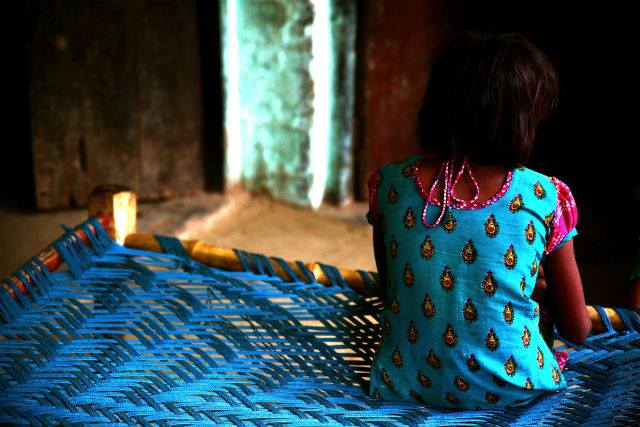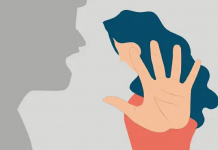This article is written by Dnyaneshwari Patil from RTMNU Babasaheb Ambedkar College of Law, Nagpur. In this article, she discusses the child sexual abuse prevailing in India, legislation regarding the protection of children from sexual abuse, and the Act’s loopholes.
Table of Contents
Introduction
The father of the nation, Mohandas Karamchand Gandhi, once said: “India will be free when the women feel safe to walk in the streets of India at midnight”. However, this continues to remain a dream yet to be achieved and far away from reality. In India, people worship little girls. However, at the same time, there has been an increase in the cases of paedophilia in India. From 2009 to 2014, the number of registered child rape cases rose to 151%. Children with disabilities face more risk as they are the easiest targets, and those from the economically weaker sections do not have the adequate means to protest and complain against the violence. The meagre of data by the proper authorities on the matters regarding sexual abuse of disabling child also aggregate the condition. According to the National Crime Records Bureau, increasing cases are due to the rise in reporting of cases and the development of new criminal law. The decrease in the stigma attached to child abuse and rape cases, awareness regarding the issue on various social media platforms and the introduction of the Protection of Children from Sexual Offence (POSCO) in 2012 and the Criminal Law (Amendment) Act in 2013 was instrumental in higher reporting of rape cases against children.
Child sexual abuse in India
Child sexual abuse (CSA) is an old age problem in India that the public has only been recently acknowledged. Before rape was the primary offence acknowledged by the public, other CSA acts were largely ignored by public discourse and the criminal justice system. In the 2007 survey sponsored by the government of India, in which 12,500 children from 13 different states were interviewed, and the gravity of widespread sexual abuse was brought to the forefront. Most of the time, children are not aware that they are being sexually abused or are scared to inform their parents about the incident. According to the 2007 survey, only 25 % of the children have told anyone about the abuse, and only 3% have informed the police. This was due to the deeply rooted cultural stigmas attached to the term ‘sex’ and CSA and unawareness about the same. The children found it difficult to raise objections against the older adults who were in an authoritative position.
The lack of specific legislation for recognising the range of offensive behaviour regarding CSA such as harassment, fondling, exhibitionism, voyeurism and exploitation for pornography was never legally sanctioned. Until 2012, the only sexual offences, not specific to children, which were covered under three Sections of the Indian Penal Code are rape (Section 375), outraging the modesty of a woman (Section 354), and unnatural acts defined as “carnal intercourse against the order of nature with any man, woman or animal” (Section 377). Thus, offences like non-penetrative sexual assault, harassment and exploitation were not explicitly recognised as a crime. Various Non-Governmental Organisations (NGOs) and the Central government’s Ministry of Women and Child Development strived hard to make the issue gain momentum between the public discourse and politics through the reports “Breaking the silence”. After adequate momentum was created due to the increase in activism by the media and the Ministry of Women and Child Development, it led to the enactment of new legislation called the Protection of Children from Sexual Offences (POCSO) 2012. It is gender-neutral and also recognises boys as the victim of sexual violence. It criminalises sexual assault, sexual harassment and pornography involving children and also mandates the establishment of special courts to expedite trials.
Addressing paedophilia in India
Paedophilia is a mental defect where an individual seeks sexual gratification from children. According to the American Psychological Association (APA) Dictionary of Psychology, paedophilia is “a paraphilia in which sexual acts or fantasies involving prepubertal children are persistently preferred or exclusive method of achieving sexual excitement.” A recent order was passed by the Allahabad High Court denying a man bail who was booked for raping a 13 years old girl. The Court also pointed out its effect on the child and instructed the judiciary to stop such crimes strictly.
The World Health Organisation terms paedophilia as a mental disorder where patients suffer from a persistent sexual interest in children. The condition cannot be cured easily; however, the behaviour can be controlled through coping mechanisms. In India, not many psychologists treat paedophilia. People suffering from the disorder hesitate to take treatment due to the stigmas attached to the issue. However, Paedophiles are different from those who abuse children. Not every paedophile abused minors. India lacks awareness regarding the disorder. Therefore talks regarding the disorder are necessary so that those suffering from it can be provided with proper treatment resulting in a decrease in further misfortunate events.
Distinctive features of POCSO
The POCSO Act was enacted in 2012. It defines a child as someone under the age of 18. The Indian Penal Code does not recognise boys as victims of sexual assault; however, the POCSO Act is a gender-neutral Act and recognises that boys can also be victims of sexual violence. Under the Act, the principle “guilty until proven innocent” has been set rather than the general principle of “innocent until proven guilty” (Section 29). The presumption of guilt under Section 29 would come into play even during the pre-trial stage as ruled by the High Court of Jammu and Kashmir.
Under the POCSO Act, penetrative sex is not only confined to penile penetration, but its definition is broad enough to include oral sex, as well as insertion of any object into the anus, mouth or vagina. (Section 3). In the State vs Pankaj Chaudhary (2011), the Delhi High Court refused to prosecute the accused of rape because digital penetration of the anus, vagina of a 5 or 6-year-old girl was not recognised as an offence under IPC. Thus, due to the POCSO Act and the 2013 Amendment, the increase in the scope of the definition of rape has increased the cover of protection of the children.
The POCSO Act also defines a wide range of sexual assault without any penetrative act with imprisonment ranging from three to five years (Section 7,8). A recent judgement by the Bombay High Court held that groping a child’s breasts without ‘skin-to-skin contact’ would not amount to ‘sexual assault’ under the POCSO Act, which is a graver offence, rather it would amount to molestation under the IPC, which is a minor offence. Before the problem regarding section 8 was the mandatory minimum sentence of three years. Due to this the percentage of acquittal became high because the Judges thought that the mandatory minimum punishment prescribed is more compared to the seriousness of the crime. Aggravated forms of penetrative and non-penetrative sexual assaults, committed by a specific section of the perpetrator in a wide range of situations and conditions or/and have a severe impact on the victim (Section 5,9).
Sexual harassment with a broader definition includes continuous following or watching, or contacting the child directly or virtually or through any other means with sexual intent. (Section 11). It also punishes the abetment of or attempts for committing any of the offences listed in the preceding Sections (Section 16). The law also contains punishment for false complaints or information given with malicious intent to prevent its misuse. Reporting and recording of the case are mandatory under the Act. The police officer must register the First Information Report (FIR) in all cases of CSA. (Section 21, 22).
Critical analysis of POCSO
Even if the POCSO Act has been seen as progressive and acknowledged countrywide, there are still many loopholes in the Act. Thus, we will discuss the problems and ambiguities in the POCSO Act, which might cause unintended negative consequences individually or in combination.
Age of consent
Under the POCSO Act, any person below the age of 18 is considered a child. Any sexual act described under POCSO would be an offence if the victim is below the age of 18 as the consent given by the minor is not considered to be valid consent under the eyes of the law. Thus, the biggest critique of the POCSO Act is that it nullifies the consent of an adolescent girl and holds the adult criminally liable. However progressive the Act may be, consensual sex between minors has been a grey area under the law as it does not provide sexual autonomy to the children. According to a study by the Centre for Child and the Law, National Law School of India University, it was observed that out of the total complaints of sexual assault under POCSO, 26 per cent were related to individuals between the ages group of 16-18 years and nearly 90 per cent of these 26 per cent complaints resulted in acquittal because the adolescent girl refused to testify against the sexual partner as they were in a consensual relationship with the accused. The determination of sexual offence involving a minor would greatly depend on the individual interpretation of the situation or circumstances, which might even lead to abuse of the law. It is either too restrictive of children’s autonomy in such matters or too permissive of CSA.
The Bombay High Court recognised this problem and granted bail to the 19-year boy booked under the POCSO Act for raping her minor cousin. Whereas the girl during the investigation disclosed that it was a consensual act.
The Supreme Court had issued a notice on a special leave petition against the order of the Madras High Court in Maruthupandi v. State (2019). It was held that even if a minor girl falls in love with the partner and has a consensual sexual relationship, the Sections of POCSO will still be attracted against the latter. Further, it was observed that if a minor girl registered a complaint about an offence under the POCSO Act, then it became an offence against the state, and the subsequent compromise won’t take away the offence. Therefore, the petition filed in the SC raises the issue of whether an adolescent boy who enters into a relationship with a minor girl can be convicted for the offence under the POCSO Act.
The Madras High Court also suggested that the consensual sexual relationship with a girl aged above 16- years should be excluded from the ambit of the POCSO Act. It was further said that the Act should be amended such that the age of the offender should not be more than five years older than that of the victim of 16 years or more so that the impressionable age of the victim should not be taken advantage of by the older offender who has crossed the age of presumably infatuation or innocence.
Thus, it is seen that a large array of cases brought under the POCSO Act are by the families of the adolescent and teenagers who are involved in a romantic relationship. Therefore, the courts need to demarcate the nature of the act that should and should not fall under the Act’s ambit because if acted hastily and irresponsibly, it would lead to irreparable damage to the youth, who acted only innocently, due to the severity of the punishment. It should not become a tool for certain sections of society to abuse the law.
Determination of the age
Another problem associated with the POCSO Act is the determination of the age of the minor. What documents should be used to determine the minor victim’s age is not mentioned under the said Act. In Jarnail Singh v. State of Haryana (2013), the Court noted that the age of the victim should be determined by Rule 12 of the Juvenile Justice Rules, and under the said rule, preference should be given to the school documents in determining the age of the victim. If other documents are produced, then the children have to undergo a bone ossification test, which only provides a rough estimate of the child’s age at best. Thus, the forensic means used to establish age might be inexact and complicated. In Babloo Pasi vs the State Of Jharkhand and Anr (2008), it was noticed that determining age is difficult in the case of the absence of a birth certificate or other official documents, and the opinions of the medical experts might help in establishing age; however, it cannot be the only and conclusive factor to do so. It further observed that hyper-technical methods should not be used, and the court should give the benefit of the doubt to the child while ensuring that the law is not being misused. Thus, determining the age is vital under the POCSO Act as it influences the outcome at the charging and trial stages. Therefore, the provisions of the POCSO Act need to be clear regarding the determination of the age and whether the benefit of the doubt be given in cases where the medical or forensic test does not provide an accurate assessment.

Mandatory reporting
One of the problems regarding the said Act is the obligation for the medical professionals in general and mental health professionals, in particular, to report to the police of anticipated or actual offences. Failure to report the CSA would lead to the punishment of a fine, or imprisonment for up to 6 months, or both. The mandatory reporting clause overrides the confidentiality of physician-client interactions. Children who are engaged in sexual intercourse become pregnant are also considered as a victim of sexual assault, and thus it mandates healthcare professionals to inform the police of such pregnancies. However, this contravenes the provision of the Medical Termination of Pregnancy (MTP) Act, 2003, in which it is mandatory for healthcare professionals to keep all information on those seeking abortions confidential.
Thus, professional’s interaction with young people will be compromised due to violation of privacy if they are obligated to reveal their private information. Thus, the Act also states that no person shall incur civil or criminal liability for providing information in good faith. Another problem regarding mandatory reporting is that it raises the issue of who should be responsible for enforcing the legal obligation where the police already scarcely possess the capacity to do so. One failing to report the cases will hardly meet with the penal and financial sanctions due to poor mechanism for its enforcement and lack of accountability.
Implementation of the POCSO
With the increase in POCSO related cases, there has also been an increased backlog of the same. This has become a cause of concern as it is making the law ineffective. Speedy justice is being denied to the victims. The conviction rate is low due to frequent adjournment and the failure of police officers to file investigation reports. Cases under POCSO are disposed of by the police because of insufficient evidence and lack of clues. The public hesitates to file complaints regarding CSA consequently due to the delay direct evidence gets lost. Similarly, the medical examination is unable to tract minor injuries sustained during the unfortunate event and lead to loss of important biological trace evidence.
According to Section 28 of the POCSO Act, the state governments, in consultation with the Chief Justice of the High Court, should designate a Sessions Court as a special court to try offences of CSA. however many provisions are not being complied with by the government. In addition to this, the judges appointed are not experts in the particular subject and lack additional training. Therefore the Supreme Court in a PIL filed by Alakh Alok Srivastava in the court passed certain directions in respect of the Act. The directions included instruction for the fast track courts for avoiding unnecessary adjournment and the constitution of a committee for monitoring the progress of trial under the Act. Constitution of Special task force by the Director-General of Police of the states to assist in the investigation and the production of witnesses before the trial courts on the due date. Creating a child-friendly environment in the court so as to prevent children from becoming hostile during the trial due to fear and various reasons associated with the event.
Conclusion
The legislation for the protection of children against sexual abuse was a much-needed one. It made a significant contribution in tackling the issue. Due to the increasing sensitisation of the problem, reporting of the CSA cases has increased. Provisions of the POCSO Act also contributed toward the recognition of unacceptable sexual behaviours that pose a threat to children. An act of sexual assault or sexual harassment has a long term impact on the mental psyche of the child who is vulnerable and at a developing stage. This trauma they experience may dictate their thoughts for years to come and may hinder their normal social growth leading to various psychological problems. The failure of Fast Track Court might affect the victim adversely. Thus the loopholes of the Act create potential problems for implementation in the Indian context. For the Fast Track Courts to be more effective, judges, prosecutors, and staff of the Fast Track Courts should be trained and sensitised towards child rights. Thus, Rooting out the problems of CSA should be the paramount interest and need the collective efforts of the public, administrator and the judiciary.
References
- https://www.ncbi.nlm.nih.gov/pmc/articles/PMC3777340/
- https://www.jurist.org/commentary/2020/05/mayank-tiwari-posco-act/
- https://crimesciencejournal.biomedcentral.com/articles/10.1186/s40163-015-0037-2
- https://www.indiaspend.com/why-child-rapes-have-soared-151-in-5-years-25891
- https://thewire.in/rights/ignoring-sexual-abuse-of-disabled-children-shows-indias-lack-of-commitment
- https://www.firstpost.com/india/high-pendency-of-child-sexual-abuse-cases-render-pocso-a-toothless-law-uttar-pradesh-accounts-for-25-of-all-cases-under-the-act-7883801.html
- https://www.jpgmonline.com/article.asp?issn=0022-3859;year=2021;volume=67;issue=3;spage=125;epage=129;aulast=Tyagi
- https://www.tribuneindia.com/news/nation/every-day-4-child-victims-of-sexual-abuse-denied-justice-due-to-insufficient-evidence-study-222387
LawSikho has created a telegram group for exchanging legal knowledge, referrals and various opportunities. You can click on this link and join:
https://t.me/joinchat/J_0YrBa4IBSHdpuTfQO_sA
Follow us on Instagram and subscribe to our YouTube channel for more amazing legal content.
 Serato DJ Crack 2025Serato DJ PRO Crack
Serato DJ Crack 2025Serato DJ PRO Crack










 Allow notifications
Allow notifications


